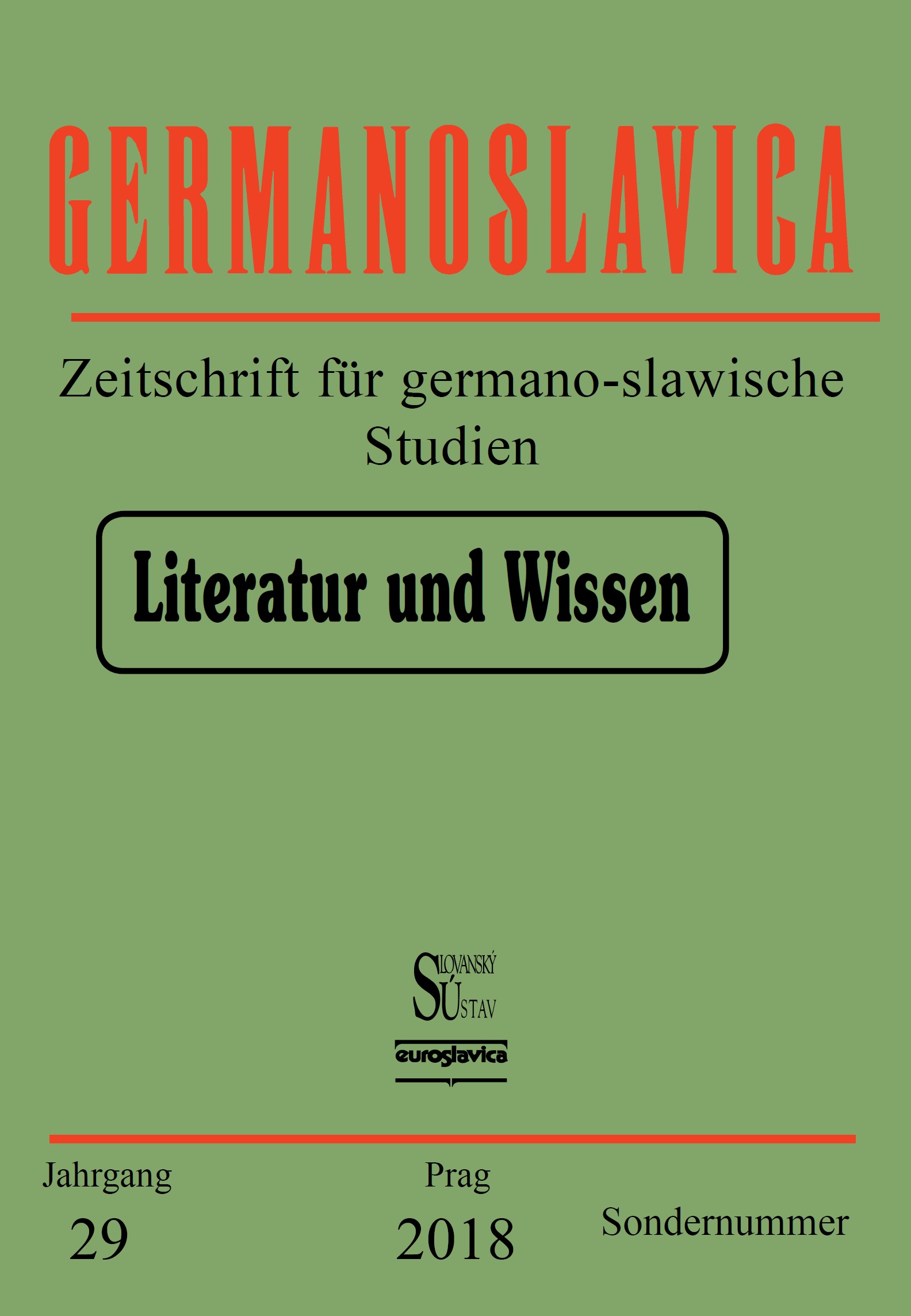Die Entstehung der Idee der Erschaffung der Welt
durch den Menschen. Leibniz – Haller – Klopstock – Goethe – Kant
The Origin of the Idea of Man as the Creator of the World Leibniz – Haller – Klopstock – Goethe – Kant
Author(s): Martin PokornýSubject(s): Philosophy, German Literature
Published by: AV ČR - Akademie věd České republiky - Slovanský ústav and Euroslavica
Keywords: comparative study; German literature, Johann Wolfgang Goethe; philosophy;
Summary/Abstract: In the 18th century a theory emerged asserting that man is a creative being and has the power to create the world or worlds, whereby man was set on the same level as God. Among the prominent representatives of this line of thinking was J. W. Goethe, and his view on this is traditionally interpreted through his poem Prometheus. By contrast, this paper focuses on an analysis of the words uttered by the main protagonist in The Sorrows of Young Werther: ‘I suff er much, for I have lost the only charm of life: that active, sacred power which created worlds around me, - it is no more.’ Interpreting Werther’s statement sheds light on another level of meaning distinct from Prometheus. It shows that, according to GGoethe, man is the creator of the world in that it is man who makes sense and meaning out of it. Man, through his imagination, in the form of memories, expectations, and so forth, and through his rich knowledge of his own and other cultures, enriches the things and phenomena that he perceives with added meanings and in this way gives them a richer life. By enriching what he perceives in this way, man creates the world or worlds in their fullest meaning and in their fullest sense. Man can thereby be likened to God, who breathes life into things. This paper also traces how Goethe’s notion of man as the creator has its roots in the thought of Leibnitz, Haller, and Klopstock, and investigates how Kant’s Copernican Turn relates to this direction of development in German literature.In the 18th century a theory emerged asserting that man is a creative being and has the power to create the world or worlds, whereby man was set on the same level as God. Among the prominent representatives of this line of thinking was J. W. Goethe�, and his view on this is traditionally interpreted through his poem Prometheus. By contrast, this paper focuses on an analysis of the words uttered by the main protagonist in The Sorrows of Young Werther: ‘I suff er much, for I have lost the only charm of life: that active, sacred power which created worlds around me, - it is no more.’ Interpreting Werther’s statement sheds light on another level of meaning distinct from Prometheus. It shows that, according to Goethe, man is the creator of the world in that it is man who makes sense and meaning out of it. Man, through his imagination, in the form of memories, expectations, and so forth, and through his rich knowledge of his own and other cultures, enriches the things and phenomena that he perceives with added meanings and in this way gives them a richer life. By enriching what he perceives in this way, man creates the world or worlds in their fullest meaning and in their fullest sense. Man can thereby be likened to God, who breathes life into things. This paper also traces how Goethe’s notion of man as the creator has its roots in the thought of Leibnitz, Haller, and Klopstock, and investigates how Kant’s Copernican Turn relates to this direction of development in German literature.
Journal: Germanoslavica
- Issue Year: XXIX/2018
- Issue No: Sondernr.
- Page Range: 47-62
- Page Count: 16
- Language: German
- Content File-PDF

